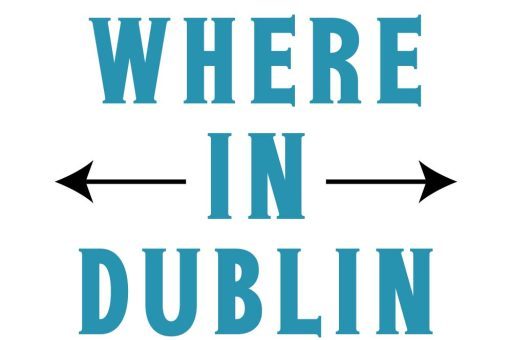When it comes to Northern Ireland, things can get a bit confusing. Is it a country? Is it part of the UK? Or is it something else entirely? From my own personal experience, this question comes up a lot, especially when chatting with people curious about geography or planning to visit the region. Let’s break it down step by step.
Let’s Understand Northern Ireland’s Status Here
Northern Ireland is located on the island of Ireland, sharing a border with the Republic of Ireland to the south and west. Politically, it is one of the four constituent parts of the United Kingdom, alongside England, Scotland, and Wales.
So, technically, Northern Ireland is part of the UK, not an independent sovereign nation. This means it doesn’t have its own separate government like countries such as France or Germany. Instead, it shares governance with the UK Parliament in London, although it also has a degree of local self-government through the Northern Ireland Assembly.
Country vs. Region: What’s the Difference?
One source of confusion is the difference between a “country” and a “region.” Many people automatically assume that because Northern Ireland is called a “country” sometimes, it must be independent.
The UK’s Unique Structure
The United Kingdom is officially a country made up of four constituent countries:
England – often called a country, but it doesn’t have its own separate government.
Scotland – has a devolved government with powers over education, health, and more.
Wales – similar to Scotland, with devolved powers.
Northern Ireland – also has devolved powers but is more directly influenced by the UK government.
So, in the UK context, Northern Ireland is considered a country, but it’s not a sovereign nation. Think of it as a country within a larger country. This is where most of the confusion comes from.
International Recognition
Internationally, Northern Ireland is rarely listed as a separate country. For example, in the United Nations, passports, or international sporting events like the Olympics, it doesn’t appear as an independent nation. Instead, the UK represents Northern Ireland.
Governance in Northern Ireland
Northern Ireland has its own local government called the Northern Ireland Executive, which operates under a system called devolution. This gives it power to make decisions on health, education, and infrastructure.
However, the UK Parliament in Westminster can override or influence these decisions. From my overall experience, this dual system of governance often confuses people because Northern Ireland has some autonomy but not full independence.
Key Institutions
Northern Ireland Assembly – makes local laws and policies.
Northern Ireland Executive – implements these laws and policies.
Secretary of State for Northern Ireland – a UK government official overseeing matters that affect the region nationally.
Northern Ireland and Identity
Northern Ireland’s unique political and cultural history also affects how people identify themselves. Some consider themselves British, some Irish, and some both. This identity mix stems from centuries of history, religion, and politics.
Because of this, whether Northern Ireland is considered a “country” can depend on the perspective of the person answering. From my own personal experience, locals often focus more on cultural identity than strict political definitions.
Historical Context
1921 – Northern Ireland was created after Ireland was partitioned.
The Troubles (1960s–1998) – a period of conflict over national identity and governance.
Good Friday Agreement (1998) – established a framework for peace and shared governance, solidifying Northern Ireland’s status within the UK but also allowing ties with the Republic of Ireland.
Practical Implications
If you’re traveling or dealing with legal matters, here’s what you should know:
Northern Ireland uses UK passports and currency (British pound).
Driving, healthcare, and legal systems are aligned with the UK.
Some cross-border agreements exist with the Republic of Ireland, but these are exceptions, not the rule.
Tourism Perspective
Many travelers visit Northern Ireland thinking of it as a separate country, especially when exploring cities like Belfast or Derry. From my overall experience, visiting Northern Ireland feels unique compared to England, Scotland, or Wales, thanks to its landscapes, culture, and history, even if politically it’s part of the UK.
Common Misconceptions
Northern Ireland is not Ireland – it shares the island but is politically part of the UK.
It’s not independent – it cannot make treaties, issue passports, or represent itself internationally.
It’s sometimes called a country – in UK terms, yes; in international terms, no.
How to Answer the Question
If someone asks, “Is Northern Ireland a country?” you can say:
Northern Ireland is a country in the context of the UK but is not an independent sovereign nation. It has devolved powers but relies on the UK for national matters.
This explanation covers both the technical and cultural aspects.
Why This Confusion Matters
Understanding Northern Ireland’s status is more than trivia—it affects politics, education, travel, and identity. From my own personal experience, even locals sometimes struggle with how to describe their home to outsiders. Clarity helps avoid misunderstandings, especially in international contexts.
Northern Ireland in Media
Media outlets often simplify complex political structures. Movies, news articles, and travel blogs sometimes refer to Northern Ireland as a “country” without explaining its relationship with the UK. This leads many to think it’s independent, which it is not.
Summary: Northern Ireland Explained
To sum it up:
Northern Ireland is one of the four countries of the UK.
It is not a sovereign nation.
It has its own local government but is under the UK Parliament.
Identity in Northern Ireland is complex, with cultural, historical, and political layers.
Understanding this helps with geography, travel planning, and even casual conversations. From my overall experience, knowing these nuances makes it easier to explain Northern Ireland to anyone curious about it.


